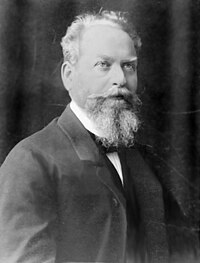
Though the term was originally coined by Hegel , the philosophical template of the discipline of Phenomenology is a recent development devised just over a century ago by Husserl.It is quite important to map out the cultural and macro-national state of the first decade to put the background to the idea of phenomenology into perspective and to see how it developed for what is a short though explosive part of the Human Experience.
Firstly , Hegel has brought about the concept of "End of" into the lexicon of thought and its consequences in doctrinal and material worldwide application circles , this is important to bear in mind as it made philosophy and its acceptance and rejection the matter of the whole of mankind as opposed to a regional matter , this meant schemes hatched for World domination where not only achievable ,on paper at least , but the block powers competing for it would have to get a "doctrine" on their side to project the scheme as a civilisational and civilising force.In short the introduction of "End of" created the stage of the ideologies of "isms" , a clash of great doctrinal , as opposed to merely tribal , blocks with the power to change the world in their image clashing , sometimes to the death , to do so.
So with a stage like that set we had the works as far as ideologies and doctrines go , ranging from Science being brought in to justify slavery and colonialism , the development of varies hybrids of communism , the clash of Phrenology and Darwinism , crank pseudo-sciences ( such as the serious and respected branch of science called "niggerology" which enjoyed esteemed patronage and whose foremost practitioners were among the founders and first Heads of The Royal Anthropological Society) , as well as the early forerunners of modern day Banking and Capitalism in the form of Corporate entities with treasuries as big as some States , and the political clout in high circles to match.
With all these Doctrines for Universal domination being bandied about the concept of Phenomenology came about at a time when the current World Order of the time was beginning to buckle , The Ottoman Empire was listing ; Russia had a revolution in 1905 which didnt quite succeed but was a harbinger of the one that would a decade later ; The British Empire had reached its zenith but the cracks of over-stretch were clearly visible in the Boer war troubles in South Africa.
In the Germanic Heartlands , as Germany as we know was not to come about until later, the initial steps to find a "holding " doctrine to a Germanic Empire of the Spirit were being thought about with a belief , also shared by Marx and Engels , that Germany was ready to take of the reigns of Empire in the 20th century from the collapsing current World Order , but with better maintainable land Empire not dependent on supplies from overseas which can be disrupted by rebellious colonies in far of continents.This Empire , like the Roman , could technically be serviced by land forces not necessarily requiring a Navy , hence being more stable and easier to keep united with permanent access to resources.
With all these "World Domination" doctrines and philosophies using the Human Being as a mass Commodity , Husserls Phenomenology came at the time to take the swing of Foucault's philosophical pendulum back to the literal centre of Being.The process was to take the grand centre of Human thought from external doctrines to the Human understanding and perceptions.
According to Vatimmo , Phenomenology suffered when Heidegger made a catastrophic mistake of joining the Nazi Party ( quite a boob to make), and thereafter Sartre took the concept to an overt Atheistic trait.Recent developments have brought the concept back by getting it into a liberation-theological footing thus re-taking the Foucault's pendulum back not only to the Centre of Being but the centre of a Spiritual Being.Which is a good thing as the "End ofs" eminating from the Neo-Cons and their ideolgues are out in force and need to be challenged using arguments from the very Centre of the Spiritual Moral Being.
No comments:
Post a Comment